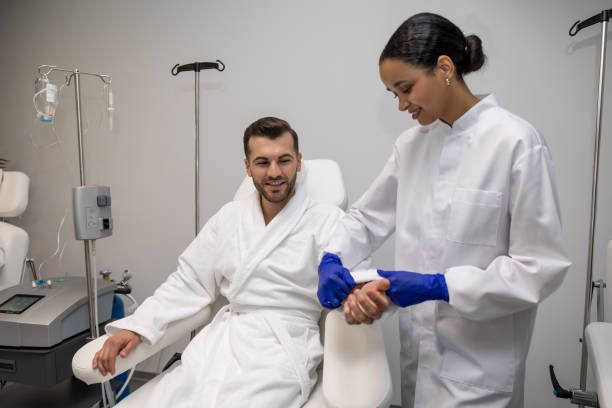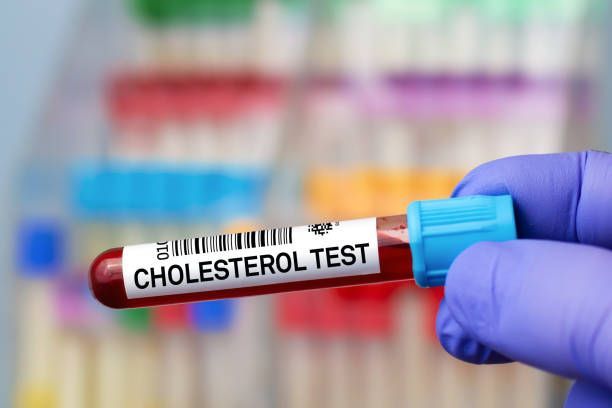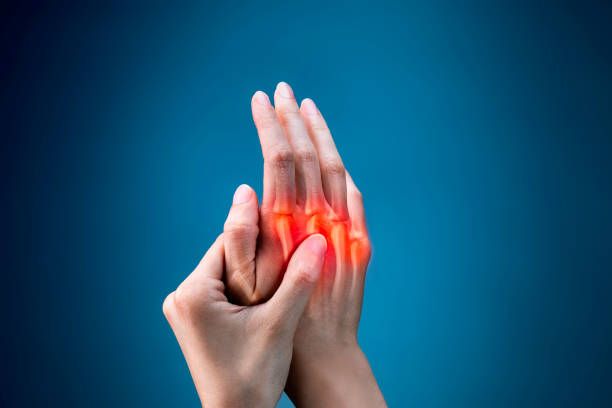The Benefits of IV Therapy for Dehydration and Nutrient Deficiencies
Staying hydrated and maintaining balanced nutrient levels are essential for overall health. Yet, many people struggle with chronic dehydration and deficiencies that affect their energy, immune system, and general well-being. This is where IV Therapy comes in, a medical treatment that's gaining popularity for its fast, effective results in replenishing fluids and nutrients directly into the bloodstream.
Whether you're recovering from illness, dealing with nutrient absorption issues, or simply trying to optimize your health, IV Therapy offers a solution that works quicker and more efficiently than oral supplements or drinking fluids alone.
In this article, we’ll break down how IV Therapy works, its key benefits, and who can benefit the most from this innovative treatment.
Understanding IV Therapy
IV Therapy, or intravenous therapy, involves delivering fluids, vitamins, minerals, and other essential nutrients directly into a vein. Because the nutrients bypass the digestive system, they are absorbed more rapidly and completely. This makes IV Therapy particularly beneficial for people who have digestive issues that prevent them from properly absorbing nutrients from food or oral supplements.
Originally used in hospitals for treating severe dehydration and nutrient deficiencies, IV Therapy has now expanded into wellness clinics, med spas, and even mobile services. Today, it’s commonly used not just to treat illness but also to boost energy, support immunity, and enhance athletic performance.
The Role of IV Therapy in Treating Dehydration

Dehydration occurs when your body loses more fluids than it takes in, and it can lead to serious health problems if not corrected quickly. Mild dehydration causes fatigue, headaches, and dry skin, while severe cases can affect your heart, kidneys, and brain function.
IV Therapy is one of the fastest and most effective treatments for dehydration because it delivers fluids directly into your bloodstream. This allows your body to quickly restore its fluid balance without waiting for oral fluids to be absorbed through your digestive tract. In situations where drinking water isn’t enough, such as after intense exercise, excessive heat exposure, or illness, IV Therapy can make a significant difference.
How IV Therapy Helps Correct Nutrient Deficiencies
Many people suffer from deficiencies in key vitamins and minerals without even realizing it. Factors like poor diet, chronic stress, alcohol consumption, and certain medical conditions can all deplete your body’s nutrient stores. Common deficiencies include vitamins B12, C, D, magnesium, and iron, all of which are crucial for energy, immune support, and overall health.
With IV Therapy, these nutrients are delivered directly into your bloodstream at higher concentrations than you could achieve through diet or oral supplements. For example, people with anemia can receive iron infusions, while those with chronic fatigue may benefit from B12 and magnesium. Because absorption through IV is immediate, you may start to feel better within hours rather than days or weeks.
Key Benefits of IV Therapy
Let’s take a closer look at the top benefits of IV Therapy for dehydration and nutrient deficiencies:
1. Rapid Rehydration
Unlike drinking water, which can take hours to fully hydrate your cells, IV Therapy works almost instantly. This is especially important for people suffering from severe dehydration due to illness, heat exhaustion, or strenuous activity.
2. Enhanced Nutrient Absorption
Because IV nutrients bypass the digestive system, they’re fully absorbed into your bloodstream. This makes IV Therapy an ideal solution for individuals with gastrointestinal issues like
Crohn's disease, IBS, or malabsorption syndromes.
3. Boosted Energy Levels
Fatigue is often linked to dehydration or vitamin deficiencies. By restoring fluid balance and replenishing key nutrients, IV Therapy can quickly improve your energy levels and mental clarity.
4. Improved Immune Function
Many IV Therapy treatments include immune-boosting nutrients like vitamin C, zinc, and glutathione. This makes it a popular choice during
cold and flu season or for those looking to prevent illness.
5. Customizable Treatment Options
Clinics offer a range of IV Therapy "cocktails" tailored to your specific needs, whether you're recovering from illness, battling jet lag, or prepping for an athletic event.
How Urgent Care Clinics Can Help with IV Therapy
If you’re experiencing symptoms of dehydration or suspect you have a nutrient deficiency, visiting an urgent care clinic is a practical and efficient option. Clinics like UrgiClinic are equipped to provide IV Therapy on-site, helping you feel better faster without the long wait times often associated with emergency rooms.
At UrgiClinic, patients can receive professional assessment and customized IV Therapy treatments based on their specific needs. Whether you're dealing with dehydration from illness, heat exposure, or recovering from a vitamin deficiency, the healthcare providers are ready to help you rehydrate and restore your nutrient levels safely and effectively.
One of the greatest advantages of choosing an urgent care clinic is convenience. No appointments are necessary, and walk-ins are always welcome. This makes it easier to get the care you need right when you need it, whether it’s during a busy workweek or on the weekend.
Who Can Benefit from IV Therapy?

While anyone experiencing dehydration or nutrient deficiencies can benefit from IV Therapy, certain groups may find it particularly helpful:
- Athletes who need quick recovery from strenuous training sessions or competitions
- People with chronic illnesses that affect nutrient absorption, such as celiac disease or ulcerative colitis
- Busy professionals dealing with fatigue, stress, and poor dietary habits
- Older adults who are more prone to dehydration and vitamin deficiencies
- Frequent travelers who experience jet lag and immune suppression
Before starting IV Therapy, it's important to consult with a healthcare professional to ensure it's appropriate for your specific health needs.
Is IV Therapy Safe?
When administered by trained professionals, IV Therapy is generally considered safe. However, as with any medical procedure, there are potential risks, including infection at the injection site, vein irritation, or allergic reactions to certain ingredients. That’s why it’s crucial to receive treatment at a reputable clinic under the supervision of qualified healthcare providers.
It's also worth noting that while IV Therapy can be incredibly effective, it shouldn't replace a balanced diet or regular hydration through water and nutritious foods. Think of it as a supportive treatment, especially useful in times of greater need.
What to Expect During an IV Therapy Session
If you’re considering IV Therapy for dehydration or nutrient deficiencies, you might be wondering what the process involves. Typically, a session starts with a consultation where a provider reviews your medical history and discusses your goals.
Once your customized IV "cocktail" is prepared, a small catheter is inserted into a vein in your arm, and the infusion begins. Sessions usually last between 30 to 60 minutes, during which you can relax, read, or listen to music. Many people report feeling more energized and refreshed shortly after their treatment.













